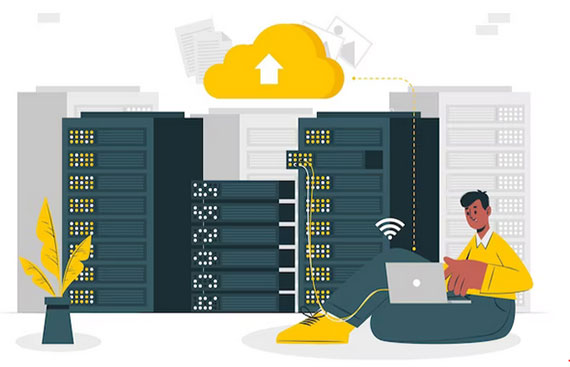Should you get a server with Windows or Linux?

The field of hosting is quite vast and it is also constantly expanding and evolving. The number of websites and applications that are publicly released on the Web each year is staggering and is not showing any signs of slowing down.
This means a greater demand for hosting and servers, especially with the introduction of new technologies such as augmented and virtual reality.
While there are a substantial number of hosting providers and server options, there is still a question that is left unanswered after many countless debates - should you get a server with Windows Server or a Linux-based operating system?
While both have their advantages and disadvantages, some users might end up preferring one to the other due to different criteria. In this article we are going to go over both options and discuss them in more detail so that you can make the choice for yourself.
Why choose Windows Server?
One of the greatest benefits of going for Windows as an OS for your server is the fact that the system has an actual user interface, which is something that Linux distributions lack. This familiarity is one of the main reasons why most people go for Windows - they have been using it for years and it makes the transition to server management a lot easier.
This ties in with another advantage and it is the fact that people generally need less prior technical experience in order to pick up server management with Windows Server exactly due to their general understanding of Windows.
Another great advantage that the operating system offers is the ability to get remote access to your Windows cloud server with the help of RDS. Remote desktop access is something that is becoming increasingly sought after in today’s digital society due to the fact that there is an increasing number of people that are starting up their own online business or company which want to hire employees that can work remotely. This RDP access then becomes crucial, which is why a lot of hosting providers are beginning to incorporate them in their Windows-based hosting plans.
Another benefit of Windows as an operating system is the fact that it supports easy additional software installation, especially when talking about other Microsoft products. Microsoft Office for example can be easily installed on a virtual machine running on Windows with the help of the available installer and a few commands.
Some users prefer using Windows due to its security and long history. Microsoft is a brand that is globally known and has also had decades of experience when it comes to creating operating systems, software and network management. Because of this, many prefer to put their trust into an already established brand rather than using something that is open-source.
Additionally, in order for a given provider to offer Windows Server licenses as a direct purchase from their own website, they need to first be an official Microsoft SPLA partner. This extra verification step also shows users that a given provider meets Microsoft’s requirements, adding an extra layer of trust.
Why go for Linux as an operating system for your server?
One of the primary reasons why Linux users prefer a Linux operating system is due to security. Over the years, Linux has been fabled as being extremely secure. Additionally, a vast majority of the Linux-based operating systems are entirely open-source, meaning that they are constantly monitored by the community. This allows for quick problem discovery, bug fixes and the development of new features.
Additionally, Linux distributions such as CentOS, Fedora and Debian have all been a staple when it comes to hosting over the last decade, gaining a substantial number of users, which continuously support the projects.
Another reason for those that prefer Linux is the fact that the operating system is completely free to get, whereas a Windows Server license can cost you quite a bit, depending on the server that you wish to install it on.
While definitely harder to get into, Linux as an operating system does offer a lot more in terms of customization options, which is why it is more flexible when compared to Windows. Commands and software are all entered and installed through the terminal, which allows for a much more granular approach when it comes to server management.
Another benefit of the different Linux distributions is that they support different scripting languages such as Python, PHP and Pearl.
Windows vs Linux servers
Overall, both operating systems have their own benefits and drawbacks. Windows is easier to use due to its graphical user interface and requires less experience in order to manage a server. Linux, on the other hand, is more secure and offers better scripting language support.
While it can be more difficult to manage a server with a Linux-based OS as well as to find information about something, the fact that the operating system is free, secure and widely supported by the different distribution communities, makes it a lucrative choice for more experienced users.
